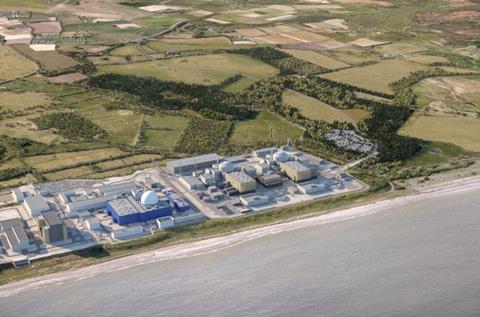Nuclear power plants, trainlines and wind farms would be built quicker under new rules, government says
The government has announced plans to speed up the construction of major infrastructure projects by reducing the ability of activists to challenge them in the courts.
Keir Starmer said proposals to be included in the upcoming Planning and Infrastructure Bill will “take on the NIMBYs and a broken system that has slowed down our progress as a nation”.
The new planning rules would mean schemes such as nuclear power plants, trainlines, roads and wind farms would not be delayed by a “challenge culture”, the prime minister said.

Infrastructure schemes can currently be challenged in the courts three times, through a written submission to the High Court, attending an oral hearing and appealing through the Court of Appeal.
The government is proposing to scrap the written stage, meaning opponents to schemes would have to convince a judge in person, while the ability to appeal would also be removed if challenge is deemed “totally without merit”.
Legal challenges are a significant factor in slowing down the delivery and increasing the cost of large infrasstructuer schemes.
More than half, 58%, of all decisions are taken to court, with each legal challenge taking around 18 months to be resolved on average, with many taking more than two years.
Examples include the Sizewell C nuclear plant, which was left in limbo for two years during a legal challenge brought by activists which was later dismissed by a High Court judge as “utterly hopeless”.
A wind farm project in East Anglia and the A47 National Highway Project were also blocked for more than two years by opponents.
The government’s announcement comes after a review by planning lawyer Lord Banner, who concluded delays to major infrastructure schemes were causing “real detriment to the public interest”.
“Reducing the number of permission attempts to one for truly hopeless cases should weed out the worst offenders, without risking inadvertent delays because judges choose to err on the side of caution,” he said.
The move has been widely welcomed by the construction industry, with Balfour Beatty chief executive Leo Quinn describing it as a “vital step” towards speeding up important projects while keeping safeguards in place.
“Reducing the uncertainty that delays progress and drives up costs should help unlock significant economic benefits and enable faster delivery of the critical infrastructure that the UK urgently needs,” he said.
Connor Teskey, president of Brookfield Asset Management, also welcomed the proposals, calling planning reforms a “key priority” for the firm’s business in the UK.
British Property Federation chief executive Melanie Leech added: “From power stations to bypasses, we take longer to deliver important national projects than other developed nations, and that has to change.
“If we want to grow the economy and fund vital public services, then we have to better balance environmental and community interests with the benefits of development, and do so in a clear and timely way.
“Reducing the scope for vexatious and unmerited legal challenges, whilst retaining a right to appeal, is a very positive step in achieving this.”




























No comments yet